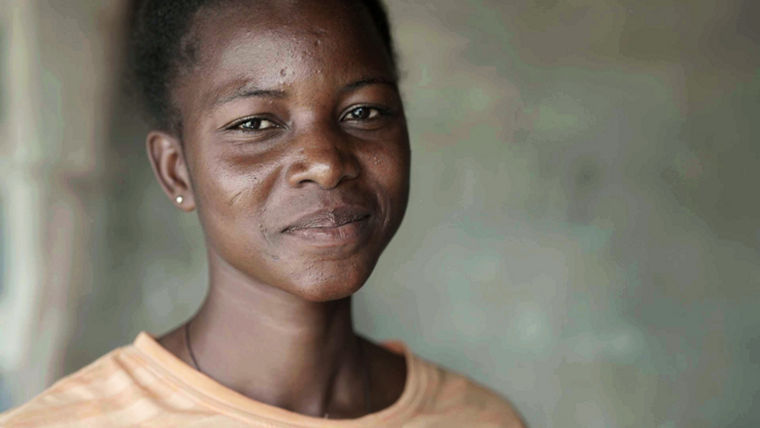They are the true giants of the savanna: The mighty baobab trees in Africa's vast steppes easily tower over giraffes with their heights of up to 30 meters. However, from December to March, when the trees bear fruit, there is much to do around these giants. In the villages south of the Sahel zone, it is usually the women who gather the ripe fruits from the ground or pick them from the tall trees using long poles. Later, in the villages, they also take on the task of opening the fruits and pounding the dry white pulp. When the pulp powder is sieved, the brown seeds, about the size of raisins, of the tree remain.
In some regions of Africa, oil is extracted from these round brown structures and used for soap making or cosmetic applications. In other areas, the pulp plays a significant economic role. Traditionally, almost all parts of the tree are used—it's not for nothing that the baobab is also known as the "Tree of Life." The fresh leaves, for example, can be cooked and prepared like spinach. Dried and ground, they season porridges, soups, and sauces. Root, bark, and leaf extracts are traditionally used as remedies. It has now been scientifically proven that they have high antiviral and antimicrobial effects. Everyday products such as cords, ropes, baskets, and mats can be made from the bark fibers.

Oil with social value
About two years ago, experts from Evonik discovered baobab seeds from rural areas in Ghana and Burkina Faso as a potential source for an oil used in skin and hair care products. "Our Business Line Care Solutions wanted to bring an oil to market that creates ecological, economic, and social value," says Natalia Hinrichs-Tontrup. She is responsible for sustainable raw materials at Creavis, the strategic innovation unit and business incubator of Evonik. This was only possible with suitable partners. The English company Aduna proved to be ideally suited. It had experience, as it was already marketing the baobab pulp from this region in Europe as a superfood. Since the use of the oil, local communities have benefited twice.

Tree as a water reservoir
Ecologically, the use of the majestic baobab trees offers many advantages. They grow wild on the dry and barren soils of the African tree savannas and stabilize them. Since their wood is not suitable as a building material, they can usually grow undisturbed. This peace is also necessary, as a baobab tree only bears fruit after about 10 to 20 years. In its mature age of more than 60 years, it can then produce up to 250 fruits per year. The tree has an important ecological function, as it stores water during the rainy season. This allows it to withstand long dry periods, and more grows around it. Where baobab trees are missing, desertification progresses.
The Great Green Wall Initiative, led by the United Nations (UNCCD), has also recognized this. Its goal is to revive 100 million hectares of depleted land in 22 African countries, creating sustainable work and income opportunities for the people living there. To achieve this, an 8,000-kilometer-long mosaic of tree plantings, including baobabs and local cultivation projects, is to be created in the Sahel zone. Besides ecology, the economic perspective must also be right. The trade in baobab fruits represents an important livelihood for the rural population. Evonik buys the previously unused baobab seeds in the region from the collectors, generating additional income for them. The part of the pulp they do not sell serves as a dietary supplement. It never played a role in the basic supply of the people in the villages.

Sustainable supply chain
"Connecting to global markets is an important factor for trading local products. Aduna made this possible for the baobab fruits in Ghana," emphasizes Hinrichs-Tontrup. The London-based trading company specializes in the ethical sourcing of plant ingredients from Africa. Together with ORGIIS, a Ghanaian non-governmental organization, it had built an ethically reliable and sustainable supply chain for baobab fruits from Ghana and Burkina Faso. This formed the basis for the use of baobab seeds.
ELEMENTS-Newsletter
Get exciting insights into Evonik's research and its social relevance – conveniently delivered to your inbox.
Through the Baobab value chain established by Aduna and ORGIIS, around 2,000 women have already found employment locally, and household income has increased tenfold. ORGIIS acts as a spokesperson and advocate for the local communities. It is clear that only if the project creates social benefits in the region will it gain lasting acceptance and support. Therefore, a portion of the revenue from the sale of the fruit pulp, seeds, and oil is directly invested in ecological and social projects. In the long term, the global marketing of Evonik's Baobab oil can increase the demand for Baobab seeds and lead to the planting and care of more trees, aligning with the Green Wall Initiative. Evonik has launched its Baobab product in collaboration with the UNCCD, supporting their efforts.

Challenging Market
The three classic aspects of sustainable development are all considered: economic, ecological, and social benefits go hand in hand. Evonik's customers also benefit, as the cosmetics industry is increasingly scrutinizing the origin and ecological footprint of their product ingredients. Their clientele is particularly demanding, and this is now the case in many countries worldwide.
In 2020, Evonik launched the "Next Generation Sustainable Feedstocks" program for its cosmetics business. The focus is on sustainable products based on alternative raw materials. Since 2022, these products have been marketed under the Ecohance brand. "Alternative raw materials replace petrochemical, synthetic, palm oil-based, or food-competing raw materials," says Dr. Wolfgang Goertz, Head of Cosmetic Solutions. "One of the most important criteria for alternative raw materials is their origin." The seeds of the Baobab tree from Ghana and Burkina Faso ideally meet these requirements due to the described advantages.

Ultimately, a sustainable product must also be well-received by consumers. Since Evonik's Baobab oil was not the first on the market, it needed to be of particularly high quality. "The oil is obtained through cold pressing and then refined and deodorized," explains Dr. Verena Dahl, who oversees cosmetic oils for Skin Care within application technology. The purification process results in a highly pure end product with a neutral scent and light color, rich in skin-nourishing and moisturizing unsaturated fatty acids and vitamins, suitable for use in various care products.
It is also important that the oils in care products do not become rancid when exposed to oxygen in the air, as consumers would find this unpleasant, as Dahl describes. The industry refers to this as oxidation stability. Evonik tested the oxidation stability of the new Baobab oil in the lab, comparing it to argan oil, a commonly used tropical oil in cosmetics, and unrefined Baobab oil. The new Baobab oil performed best, which Dahl attributes to a high content of Vitamin E. Tests on volunteer subjects confirmed the oil's good compatibility and moisturizing effect. It is now used in a variety of skin and hair care products.

Baobab oil in demand in Asia
The oil, introduced at the end of 2023, has been particularly well-received in Asia. "We have customers who use Baobab oil because they can highlight its African origin and particularly soothing, nurturing effect on the skin in their marketing. A nice example is a multifunctional baby cream introduced in China in 2024," says Ivy Hou, who markets Evonik's Baobab oil worldwide from Shanghai. For other customers, the sustainable, socially responsible supply chain is an important selling point.
Evonik provides its customers with all these guaranteed product promises, known in the industry as "claims." In addition to claims about the oil's origin and properties, the positive application characteristics, effects, and sustainability aspects are highlighted. "Our oil essentially fulfills the same function in the end product as tropical oils," explains marketing expert Hou. "But it has the potential to be the star in marketing."
In the future, the first processing step, grinding the Baobab seeds, is also planned to take place in Ghana. By 2025, an oil mill is planned to be established at Aduna and ORGIIS, which will provide the oil quality required for export and further improve the employment and income situation locally. The Deutsche Gesellschaft für Internationale Zusammenarbeit (GIZ) supports the project through "Invest for Jobs," a program of the German Federal Ministry for Economic Cooperation and Development (BMZ). The support includes training measures for the predominantly women-led associations of Baobab collectors and processors, as well as financial assistance for acquiring the necessary equipment.

As a result, an even larger portion of the value creation will remain in Africa. Only the extracted Baobab oil will be shipped to Germany, instead of tons of seeds.
This is ECOHANCE®.
Under the brand name Ecohance, the Business Line Care Solutions offers particularly sustainable ingredients for cosmetics, characterized by three aspects: raw material selection, supply chain, and performance.
- The biobased raw materials come from environmentally friendly cultivation, enhance production by-products, or do not compete with food.
- The supply chain focuses on traceability and fair involvement of local communities.
- The quality, functionality, and efficiency of the products meet the highest standards in both cosmetic industry processing and end-user application.
The Ecohance program by Evonik currently includes three products:
- A particularly efficient emulsifier based on a by-product from olive oil production
- Baobab oil from the seeds of wild-growing African Baobab trees
- A moisturizing thickener produced through an energy-saving enzymatic process
More information at
https://personal-care.evonik.com/en/sustainability/ecohance



